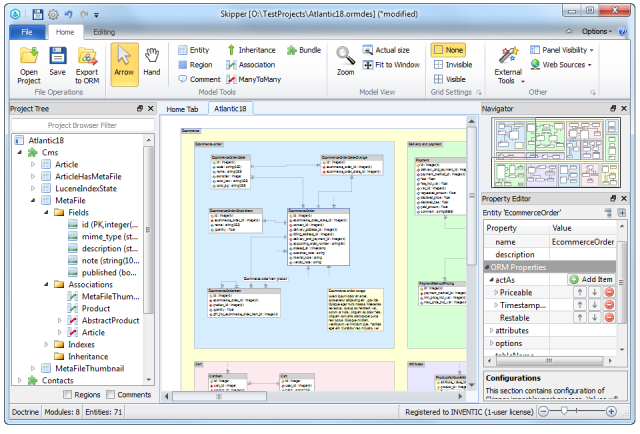ORM Designer has moved and is now available under Skipper take a look at the new site.
About using UTF-8 fields in MySQL
Joshua Thijssen writes; I sometimes hear: “make everything utf-8 in your database, and all will be fine”. This so-called advice could not be further from the truth. Indeed, it will take care of internationalization and code-page problems when you use UTF-8, but it comes with a price, which may be too high for you to pay, especially if you have never realized it’s there..Indexing is everything… or at least.. good indexing makes or breaks your database. The fact remains: the smaller your indexes, the more index records can be loaded into memory and the faster the searches will be. So using small indexes pays off. Period. But what has got this to do with UTF-8?
Read the entire article here>> A day in the life of…
High Scalability – More Troubles with Caching
As a tasty pairing with Facebook And Site Failures Caused By Complex, Weakly Interacting, Layered Systems, is another excellent tale of caching gone wrong by Peter Zaitsev, in an exciting twin billing: Cache Miss Storm and More on dangers of the caches. This is fascinating case where the cause turned out to be software upgrade that ran long because it had to be rolled back. During the long recovery time many of the cache entries timed out. When the database came back, slam, all the clients queried the database to repopulate the cache and bad things happened to the database. The solution was equally interesting:
So the immediate solution to bring the system up was surprisingly simple. We just had to get traffic on the system in stages allowing Memcache to be warmed up. There were no code which would allow to do it on application side so we did it on MySQL side instead. “SET GLOBAL max_connections=20” to limit number of connections to MySQL and so let application to err when it tries to put too much load on MySQL as MySQL load stabilizes increasing number of connections higher until you finally can serve all traffic without problems.
Peter also suggested a few other helpful strategies:
- Watch frequently accessed cache items as well as cache items which take long to generate in case of cache miss
- Optimize Queries
- Use a Smarter Cache
- Include Rollback in Maintenance Window
- Know your Cold Cache Performance and Behavior
- Have a way to increase traffic gradually
- Consider Pre-Priming Caches
via more.

